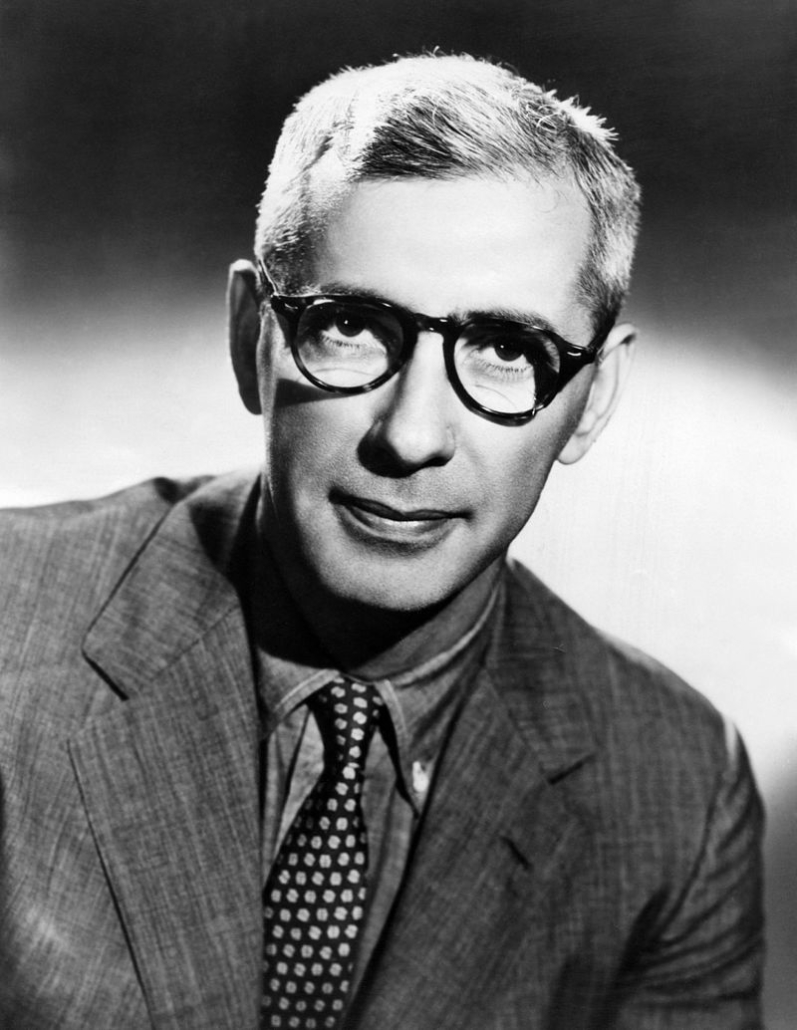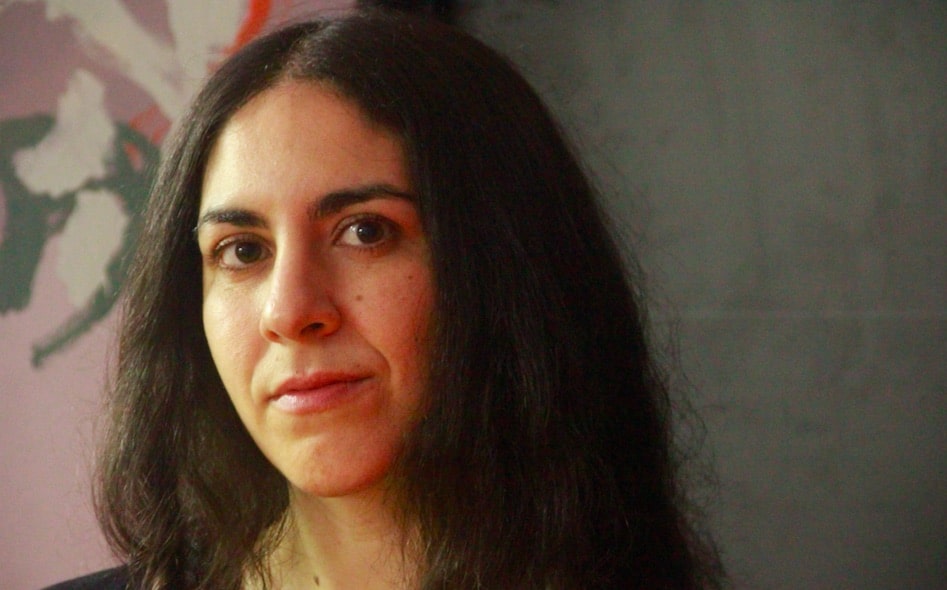When Minorities Are Mighty: How Tiny Genetic Differences Can Have Huge Cultural Consequences
Which single invention has contributed most to our understanding of reality? Appropriately enough, it’s easy to overlook one of the best candidates: the microscope. It revealed whole new worlds existing not merely under our eyes, but actually within our eyes and every other organ of the body. The microscope taught humanity that the minute can be mighty. For example, we learnt that hitherto unsuspected organisms, invisible to the naked eye, had been shaping human history and evolution for countless millennia. Witness the Corona virus and the Black Death. Both the physical size and the genetic complexity of the virus are far less than those of human beings, but the virus is now re-shaping human history as the plague bacillus did in the Middle Ages.
Applied ambiguity
But that lesson of micro-might was apparently lost on the sociologists, anthropologists and other “experts” who drew up a statement on “The Race Question” issued by the United Nations in 1950:
From the biological standpoint, the species Homo sapiens is made up of a number of populations, each one of which differs from the others in the frequency of one or more genes. Such genes, responsible for the hereditary differences between men, are always few when compared to the whole genetic constitution of man and to the vast number of genes common to all human beings regardless of the population to which they belong. This means that the likenesses among men are far greater than their differences. (“The Race Question,” UNESCO, Paris, July 1950)

Ashley Montagu (born Israel Ehrenberg), chief writer of “The Race Question”
The statement is dishonest, because it exploits the ambiguity of the phrase “far greater.” Does the phrase mean “far more numerous” or “far more powerful”? The compilers of the statement, like the Jewish anthropologist Ashley Montagu (né Israel Ehrenberg), wanted to use the undoubted truth of the first meaning to imply the falsehood of the second meaning.
Humans, chimps and gorillas
Using that kind of dishonest reasoning, you could also say that the likenesses among primates — the group that contains humans, chimpanzees and gorillas — are “far greater” than their differences. Clearly, the genes that primates have in common far outnumber the genes responsible for anything unique to Homo sapiens. For example, only a tiny number of genes underlie the human faculty of language. And those genes seem to have appeared in an eye-blink of evolutionary time.
But that one small genetic difference outweighs the vast number of shared genes among primates. The tiny minority of genes-for-language had a decisive effect, turning one group into a new kind of creature — a creature that spoke and reasoned, and thereby cooperated in new and uniquely powerful ways. Language made us human. In time, you could say that it made us superhuman, allowing us to transcend death and distance with a form of magic called writing.
Eugenic processes at the center of Judaism
Writing is undoubtedly the most important invention in human history. Indeed, it created the very concept of “history.” But not all human “populations” have been exposed to the written word for the same length of time and to the same degree. Writing created a new cultural environment in which existing and emergent genes were favoured or disfavoured by natural selection. There is good evidence, for example, that some groups have acquired genetic adaptations for reading: see Peter Frost’s fascinating discussion of the Visual Word Form Area (VWFA), for example. Such “literacy” genes, as they might be called, would be a tiny fraction even of the tiny fraction of genes responsible for the faculty of language in the first place. But that fraction of a fraction might, again, have had decisive effects on human history.
After all, one obvious group for selection-by-literacy is Ashkenazi Jews, whose culture — and marriage prospects — centred for many centuries on the mastery of complicated texts like the Talmud and Torah. As Kevin MacDonald has noted: “success as a scholar was valuable because it allowed the scholar to contract a desirable marriage, often to a woman from a wealthy family. At the very center of Judaism, therefore, was a set of institutions that would reliably result in eugenic processes related to intelligence and resource acquisition ability.” I argued in “Gas-Bags Are Not Great” that the very fluent and prolific Christopher Hitchens was, in effect, a “reading, writing rabbi,” able to absorb and emit words at high speed thanks to his part-Ashkenazi ancestry and descent from generations of highly literate Ashkenazim.
Trotsky as Talmudist
And Hitchens himself said that his great hero Leon Trotsky (né Lev Bronshtein) “would have made a brilliant Talmudist.” So would Ashley Montagu, Morris Ginsberg and Claude Lévi-Strauss, who were three of the ten so-called experts who drew up the UN Statement on “The Race Question” quoted above. They were all Ashkenazi Jews, which is statistically anomalous even before you consider that Ashley Montagu was the dominant figure behind the Statement. If “the likenesses among men are far greater than their differences,” how is that the tiny minority of Ashkenazim can be represented so disproportionately among the ideologically influential? The likenesses should swamp the differences and Ashkenazim shouldn’t appear so often in situations like that.
In fact, of course, small differences — like genes for language — can have huge consequences. Small genetic differences underlie the higher average IQ and literacy of Ashkenazim, but those small genetic differences have given Ashkenazim huge advantages in cultural and ideological competition. But I’d also suggest that Ashkenazim enjoy small but decisive differences in genes for an ingroup-outgroup morality — or rather, for lack of any sense of moral obligation to non-Jews. It’s also statistically anomalous that world-historic fraudsters like Robert Maxwell and Bernie Madoff should be Ashkenazi. Not to mention prolific sex-criminals like Harvey Weinstein and Jeffrey Epstein.
Minority predators, majority prey
All four men were predators and among lower animals predation is an evolutionary strategy under genetic control. Why should predatory behaviour not also be genetically influenced or controlled among human beings? For example, psychopathy is what called an evolutionary stable strategy (ESS), in that it can exist and be advantageous at a certain low level in a population because psychopaths are not encountering other psychopaths often enough to be disadvantaged in their habitual predation and immorality.
Two Ashkenazi predators and possible psychopaths: Sir Philip Green and Harvey Weinstein
In other words, psychopaths have to be a minority to be successful. Does that have any genetic implications for racial minorities like Jews and Gypsies living among the White racial majorities of Europe? It may indeed have such implications, particularly if the minority in question evolves cultural taboos and punishments against predation on the in-group rather than the out-group. But Jews and Gypsies prey on the out-group in different ways suited to their vastly different levels of intelligence and literacy. Ashkenazim have had a culture centred on books; Gypsies have had a culture centred on low-level parasitism. And that Gypsy culture has produced another statistical anomaly: Tyson Fury, the current heavy-weight champion of the world, is a “self-proclaimed Gypsy King” and drawn from a tiny minority within Europe’s population, let alone the world’s.

Minority might: the “Gypsy King” Tyson Fury
And although Fury may be less Gypsy than Irish Traveller, the two groups have inter-bred and have similar cultures of fighting, philoprogenitiveness and contempt for education. Presumably they’ve evolved in similar ways, as fast-reproducing nomadic predators on a settled and genetically pacified out-group. Fury’s wife Paris wants their children to follow Gypsy tradition and leave school at the age of 11 as Fury himself did, and in early 2020 Fury faced accusations of fraud over a drug test. Criminality is another tradition among Gypsies and Travellers (see my discussion of the serial rapist Joseph McCann). But Fury seems to be of above-average intelligence even by White standards — he both out-fought and out-thought his “fearsome” Black opponent Deontay Wilder — and perhaps that explains his involvement in another kind of criminality. When the Guardian reported Fury’s victory over Wilder, the newspaper made sure to remind its readers of his previous record of crime-think: “In the past Fury has equated homosexuality and abortions with paedophilia, claimed ‘Zionist, Jewish people … own all the banks, all the papers, all the TV stations’ and ‘a woman’s best place is in the kitchen and on her back’.”
Public Enemy #1 among Jews
Fury might not know the word “hyperbole,” but he’s intelligent enough to know that he was using it when he made his claim about “Zionist, Jewish people.” Obviously, they don’t own “all” of the things he named. But they own a hugely disproportionate amount and exercise hugely disproportionate influence in media and finance. However, they don’t always use that influence in the best interests of the out-group. Interestingly, both Jews and Gypsies have contemptuous terms for the out-group: goyim and gorja, respectively. And while the Jewish fraudster Robert Maxwell (né Ján Ludvík Hyman Binyamin Hoch), who preyed on the goyish out-group, was buried with the highest of honours on Israel’s most sacred ground, the Jewish fraudster Freddy David, who preyed on the Ashkenazi in-group, has described himself as “Public Enemy #1 in the Jewish community” of London:
A financial adviser who stole £15 million from investors failed to attend court on Wednesday as his lawyer claimed he feared he would not be able to prepare kosher food for himself if he moved to a tougher jail. Freddy David, 51, used his good reputation within the Jewish community as managing director of HBFS Wealth Management to sell non-existent investment products to his clients.
David transferred his mother around £176,000 while under investigation and spent around £36,000 on gambling just a few days before he was finally arrested, Southwark Crown Court heard. He used part of an £80,000 investment from one victim to set up a restaurant called “Let’s Meat”, visit Greece and Israel and feed his gambling addiction.
After his arrest, David, who also paid his children’s private school fees with the cash, told police: “I am public enemy number one in the Jewish community and understandably so. I have very very few friends left and I understand why.” David stole a total of £14,545,594 from a total of 55 clients over ten years. (Fraudster who stole £15m from community fails to attend confiscation hearing over kosher food claim, The Jewish Chronicle, 26th February 2020 / 1st Adar 5780)

Freddy David, “Public Enemy #1” among Jews
Freddy David’s risible “kosher food claim” is also an example of the verbal slipperiness that may be familiar to anyone who has argued with an Ashkenazi Jew. And let’s return to another claim by Ashkenazi Jews: that “the likenesses among men are far greater than their differences.” Again, the claim is slippery, because it relies on the ambiguity of “far greater.” If you own a hundred quartz pebbles and I own ninety-five quartz pebbles and five diamonds, the likenesses between our assets are, in one sense, “far greater than the differences.” In another sense, the differences are far greater than the likenesses.
Artistic abortions
The huge genetic likenesses among humans are quartz. The tiny genetic differences are diamonds. And what price would you put on the tiny genetic differences that allow humans to speak and keep chimpanzees dumb? But sometimes humans are also unable to speak: there are laws and social sanctions against “hate” which stifle debate on the very topic of human differences. I’ve argued in articles like “Free Speech Must Die!” that Jews have played a central role in this kind of censorship. For Jews, “free speech” means speech that frees them to prey on the White majority and subvert that majority’s culture. And speaking of subversion (while I still can), here’s a final statistical anomaly:
Aliza Shvarts (born 1986) is an artist and writer who works in performance, video, and installation. Her art and writing explore queer and feminist understandings of reproduction and duration, and use these themes to affirm abjection, failure, and “decreation”. Simone Weil’s idea of decreation has been described as “a mystical passage from the created to the uncreated” and “a spiritual exercise of mystical passage: across a threshold, from created to uncreated”.
Shvarts’ 2008 performance Untitled [Senior Thesis], 2008 was the center of the so-called Yale student abortion art controversy, generating an international debate. The work explores ideas of fiction and doubt, and engages feminist inquiries into the medical, political, and legal frameworks of gender and reproduction. …
Over the course of nine months, Shvarts used donated sperm to inseminate herself as often as possible between the ninth and fifteenth days of her menstrual cycle. On the twenty-eighth day of her cycle, she took herbal medications meant to induce menses or miscarriage (although she never knew if she was pregnant). Shvarts intended to exhibit video of herself experiencing vaginal bleeding on four sides of a clear plastic cube, which would be wrapped with transparent plastic lined with samples of the discharged fluid. (See Aliza Shvarts and Yale student abortion art controversy at Infogalactic)

The pretentious and repulsive Aliza Shvarts
Like Bernie Madoff and Tyson Fury, Aliza Shvarts is what might be called a behavioural outlier. Madoff did something exceptionally greedy and dishonest; Fury did something exceptionally athletic and aggressive; Shvarts did something exceptionally pretentious and repulsive. But how can minorities regularly supply outliers like that if we’re all the same under the skin?
They can’t, but that doesn’t matter, because we aren’t. A minority of genes separates humans from other primates, and a minority of genes separates Jews or Gypsies from other humans. In both cases, the minority is mighty.




